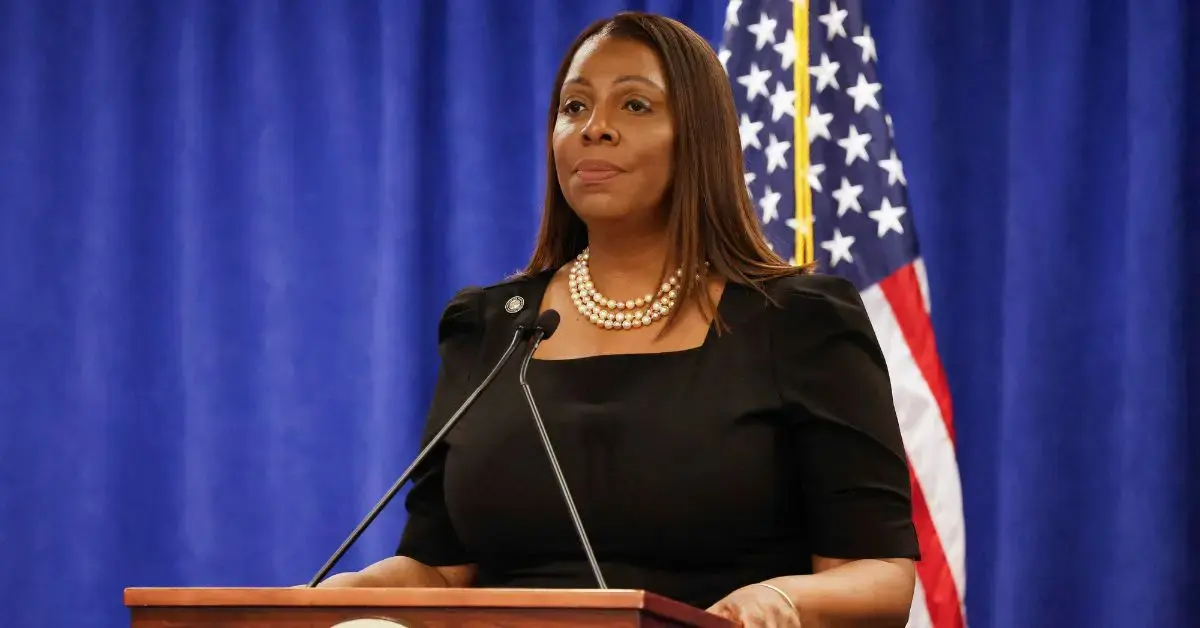In a seismic legal reversal, a New York appeals court on August 21, 2025, struck down a nearly half-billion-dollar civil fraud penalty against President Donald Trump, his family, and the Trump Organization, marking a significant victory for the former president and a crushing defeat for New York Attorney General Letitia James. The $464 million judgment, initially imposed by Judge Arthur Engoron in February 2024, was deemed “unconstitutionally excessive” by the Appellate Division, First Department, sparing Trump and his companies from a financial blow that could have disrupted his real estate empire. The ruling, which has sparked intense debate, has also drawn scrutiny to the costs borne by New York taxpayers, with estimates suggesting the state spent hundreds of thousands of dollars on the high-profile case.

The case, formally known as New York v. Trump, began in 2022 when James filed a sweeping civil lawsuit accusing Trump, his adult sons Donald Jr. and Eric, and the Trump Organization of engaging in a decade-long scheme of financial fraud. The allegations centered on claims that the defendants inflated property values, including Trump’s Mar-a-Lago estate and Trump Tower penthouse, to secure favorable loans and insurance terms. Following a contentious trial from October 2023 to January 2024, Engoron ruled that Trump and his co-defendants had committed fraud, ordering them to pay $364 million in disgorgement plus interest, totaling $464 million. The judge also imposed bans on Trump and his sons from leading New York companies and required the dissolution of certain Trump Organization entities, though these measures were stayed pending appeal.

The appeals court’s decision to void the penalty has been hailed by Trump and his supporters as a vindication. In a statement on X, Trump declared, “TOTAL VICTORY in the FAKE New York State Attorney General Letitia James Case! I greatly respect the fact that the Court had the Courage to throw out this unlawful and disgraceful Decision that was hurting Business all throughout New York State.” The Trump Organization echoed this sentiment, calling the case a “politically motivated” attack aimed at destroying the president’s business. The ruling, which upheld Trump’s liability for fraud but deemed the penalty excessive, has left open the possibility of further appeals, with James vowing to take the case to a higher court.
The financial burden on New York taxpayers has become a focal point of criticism. Legal experts estimate that the state’s costs, including attorney fees, court proceedings, and investigative expenses since James launched the probe in 2019, run into the hundreds of thousands, if not millions, of dollars. Critics, including posts on X, have questioned whether James should be held accountable for pursuing what they call a “politically driven” case that ultimately failed to deliver its intended punishment. One user, @RodDMartin, wrote, “James’ fine: $464M for a victimless civil dispute… Even the Democrat appeals court cut it to $175M,” highlighting the reduced bond amount set in March 2024 as evidence of judicial skepticism.
James, undeterred, issued a statement affirming the court’s finding that Trump and his company were liable for fraud. “This ruling affirms the well-supported finding of the trial court: Donald Trump, his company, and two of his children are liable for fraud,” she said, emphasizing her intent to appeal. Her office has faced backlash, however, with Trump’s legal team and supporters arguing that the case was fueled by political animus. This narrative has been bolstered by a Department of Justice investigation into James’ real estate transactions, launched in early August 2025, which some see as retaliation for her pursuit of Trump.

The ruling has broader implications for Trump’s political and business future. While the fraud finding remains, the elimination of the massive penalty alleviates immediate financial pressure and reinforces Trump’s narrative of being targeted by partisan prosecutors. The decision also comes amid other legal battles, including a $83.3 million defamation verdict in favor of writer E. Jean Carroll, which Trump is also appealing. For James, the setback dents her reputation as a formidable adversary of Trump, though her supporters argue that the upheld fraud finding validates her efforts to hold powerful figures accountable.
As the legal saga continues, the appeals court’s decision has reignited debates about fairness, political motivations, and the use of public resources in high-stakes litigation. For New York taxpayers, the question remains whether the pursuit of this case was worth the cost, while for Trump, the ruling marks a rare but significant triumph in his ongoing battle against legal challenges.






